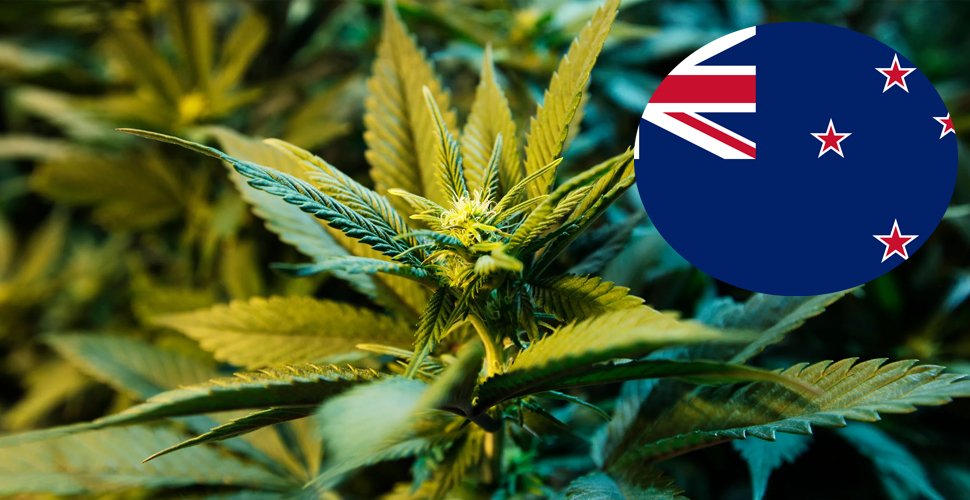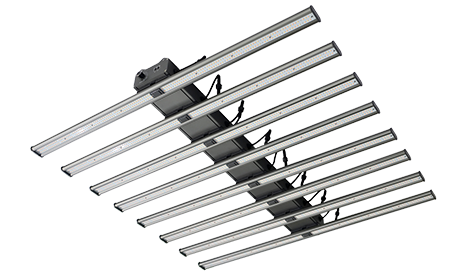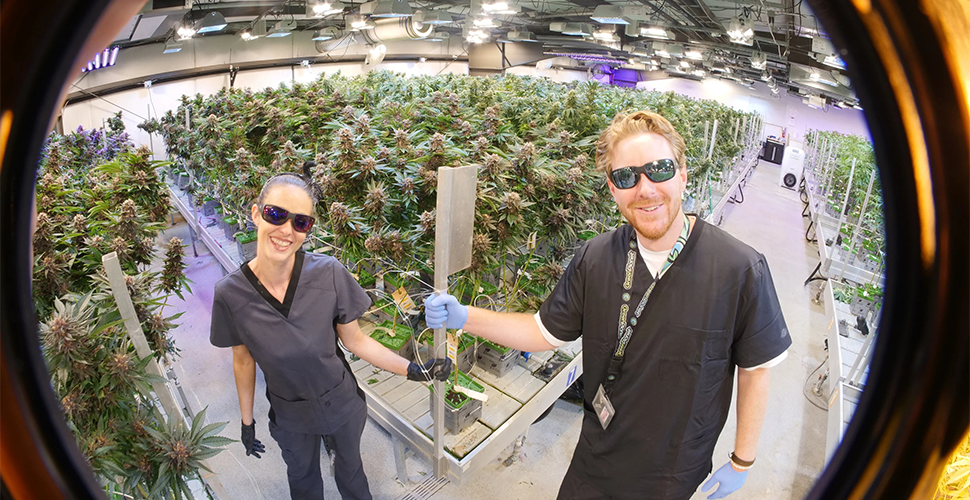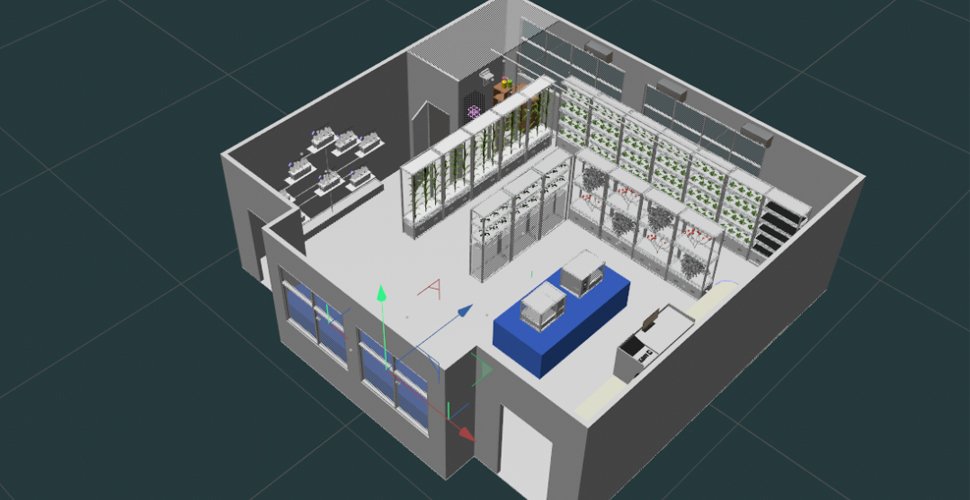Efnisyfirlit
The global trend of cannabis legalization has been growing. As more and more countries recognize the potential benefits of legalizing cannabis, whether for medical, industrial, or recreational use. For companies who want to invest in the situation, there is a doubt, is it possible to grow weeds in New Zealand?
For now, industrial hemp and medical cannabis are legal in New Zealand, but both are highly regulated. Recreational marijuana is still illegal.
There is a huge growth curve coming up within the cannabis market after COVID. Growing hemp in NZ could become a gateway to regenerative agriculture. The New Zealand Cannabis Association predicts that by 2030, the domestic industry could be worth $2 billion and create 20,000 employment opportunities.
Growing hemp offers a way to reduce the carbon footprint of New Zealand agriculture while meeting the changing global consumer demand for plant-based protein and food products.
In this article, we will learn about the history of hemp in New Zealand, whether is cannabis legal in New Zealand and how to grow weeds in New Zealand.
History of New Zealand Weed
As of March 2023, the use of medical cannabis, industrial hemp and recreational hemp in New Zealand remains highly regulated, with various New Zealand marijuana laws and regulations in place for each sector.
Industrial Hemp
We all know that the use of industrial hemp is legal in New Zealand, and industrial hemp has a long history in New Zealand. Industrial hemp is used to produce textiles, food, cosmetics and building materials.
- In the early 19th century, industrial hemp was first introduced by European settlers. It was initially grown for its fiber, which was used to make clothing, rope and other textiles.
- In the 1990s, the government began to ease restrictions on cannabis cultivation and processing in recognition of the plant’s potential as a source of sustainable, environmentally friendly products.
- The New Zealand government introduced the Industrial Hemp Regulations in 2006, which set out the rules and regulations for the cultivation, processing and sale of industrial hemp in New Zealand. The tetrahydrocannabinol content of industrial hemp must be less than 0.35%.
- Today, New Zealand’s hemp industry is also exploring new and innovative uses for the plant, such as the development of hemp-based plastics and biofuels.
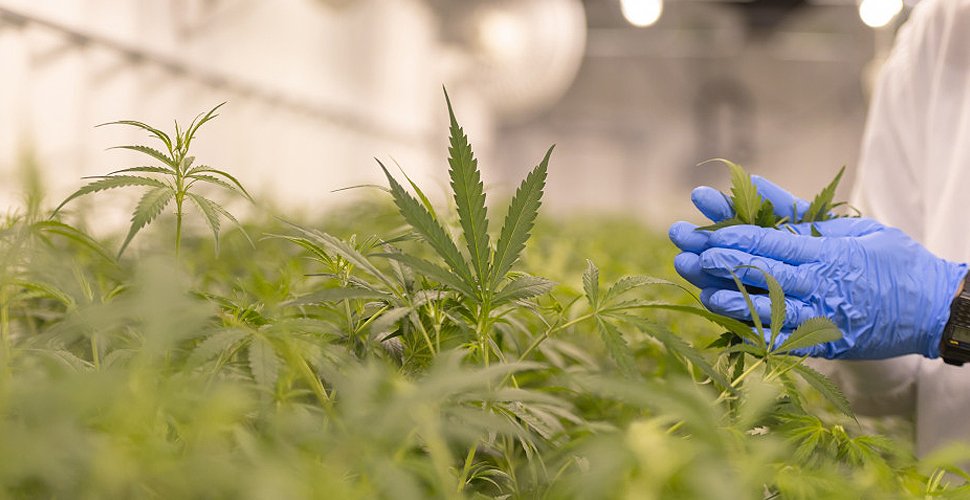
Medicinal Cannabis
The use of medical marijuana is also legal in New Zealand, but it must be prescribed by a doctor and meet specific criteria.
There have been New Zealand weed laws and regulatory barriers to the development of medical cannabis. However, recent changes to the drug laws and the introduction of the medical cannabis program have paved the way for greater access to medical cannabis products for those in need.
- In the 1970s, researchers in New Zealand began studying the potential therapeutic effects of cannabis.
- At the beginning of the 21st century, New Zealand began reforming its drug laws with the introduction of the Misuse of Drugs Amendment Act in 2005. This led to a legal framework for the use of medicinal weeds.
- In 2010, pharmaceutical company GW Pharmaceuticals launched Sativex for the treatment of spasticity in multiple sclerosis.
- Sativex was approved for use in New Zealand in 2017, making it the first cannabis drug to be legally available in the country.
- In 2018, the New Zealand government announced plans to develop a medicinal cannabis program with the aim of providing a legal framework for the production, distribution and use of medicinal weeds.
- In 2020, implement plans to allow doctors to prescribe medical marijuana products for patients with terminal illnesses, chronic pain, spasticity due to multiple sclerosis, and chemotherapy-induced nausea and vomiting.
Recreational Marijuana
To this day, recreational marijuana use is still illegal in New Zealand.
- In the 1970s, the use of New Zealand cannabis for recreational purposes became popular.
- New Zealand enacted the Misuse of Drugs Actin 1975, which classified recreational cannabis as a Class B drug and made its use and cultivation a crime.
- In 2020, a referendum was held in New Zealand on the legalization of recreational cannabis. The results were 50.7% against,48.4% for legalization, and 1% of votes were invalid.
- In 2022, the government announced plans to conduct a review of drug laws, which will include a discussion of the possibility of legalizing marijuana.
- To this day, recreational marijuana use is still illegal in New Zealand.
How Much Money Can I Make from Growing Cannabis?
With growing awareness of the environmental benefits of hemp and the potential for sustainable, locally produced products, the future of the industrial hemp industry in New Zealand looks bright.
While an increasing number of farmers and processors are entering the market, growing weed with LED is a big trend worldwide.
The New Zealand geography is ideal for cannabis production and yields per hectare are high. Cannabis crops can be harvested in 90-100 days or mature to produce a seed crop in 140 days. The versatility of hemp means that all parts of it can be harvested.
One hectare of cannabis can produce,
- 250 liters of hemp seed oil for a variety of uses from paint to food-grade cooking oil. Premium hemp seed oil retails for up to NZ$75 per liter.
- One metric ton of hemp seeds, a nutritious grain rich in protein and omega-3 fatty acids. Hulled hemp seeds retail for up to NZ$70 per kilo.
- Three metric tons of hemp fiber, valuable for rope and textiles, retailing for about NZ$2 per kilogram.
- Six metric tons of hemp husk (pulp), which can be used to produce paper and building materials such as hemp concrete, retail for about NZ$1 per kilogram.
Hemp is an ideal crop for crop rotation due to its long root structure that penetrates deep into the soil at full maturity, breaking down and conditioning the soil for subsequent crops, which helps aerate the soil.
When used for specific industrial purposes, it can also be grown on contaminated soil if it is intended for the construction industry and not for human or animal consumption. In Poland and other Eastern European countries, cannabis crops have been removed from contaminated land with large amounts of heavy metals.
In short, weeds have enormous economic potential.

Is It Worth Investing in New Zealand Cannabis Cultivation?
Industrial Hemp
Industrial hemp is a versatile crop that can be used in a variety of products, including textiles, paper, building materials, food and supplements. New Zealand’s hemp industry is exploring new and innovative uses for the plant, such as the development of hemp-based plastics and biofuels.
Its future looks bright, with the ability to make significant profits from relatively small parcels of land.
Before investing in industrial hemp cultivation, it is important to research the legal requirements and the market demand for industrial hemp in New Zealand. Although industrial hemp cultivation is legal, there are restrictions on the amount of tetrahydrocannabinol.
It is also important to consider the cost of growing, including the land, equipment and labor needed to grow and harvest your crop. You should also research potential buyers of your cannabis products and the price you can expect to receive.
Medicinal Cannabis
The demand for medical cannabis is also growing around the world. There is evidence that cannabis can safely help relieve their pain. Health Minister David Clarke says thousands of New Zealanders are living with chronic illness and terminal pain.
A $13 million grant from the New Zealand government for the primary industry to support local medical cannabis companies (Puro). This will help accelerate the establishment of organic cannabis industry standards in New Zealand so that other local companies can follow.
The money will also be used to create organic production guidelines for indoor and outdoor growing. As I just said, growing weeds indoors with LED lights cannabis is a worldwide trend. And why do I emphasize the LED indoor light for weed plants? Because it is an indispensable growing device for indoor cannabis cultivation.
They will work on creating unique plant varieties and seeds that can be used by the New Zealand industry, as well as researching processes that can be followed after harvest, and will even be used to develop training opportunities for individuals who want to join the industry.
July 20,2021 – New Zealand’s cannabis clinics have recently introduced a patient ID card that identifies them as a cannabis drug patient undergoing treatment, according to media reports. Just as patient ID cards are being rolled out, New Zealand’s legal framework for medicinal cannabis is receiving renewed attention from patients and lawmakers alike.
On the economic and policy front, the Dutch government is also grappling with patient demand for medical marijuana.

Recreational Marijuana
For now, it is not feasible to invest in cannabis cultivation for recreational purposes in New Zealand.
While young voters are said to be the key to New Zealand’s marijuana legalization referendum, past proposals have been attractive.
Adults in New Zealand over the age of 20 can purchase a daily limit of 14 grams of marijuana in accordance with regulations, with a maximum of two plants per person and a maximum of four plants per household. It also includes social use regulations for marijuana that allow for the legal establishment of marijuana retail stores, marijuana cafes, and other establishments.
However, it is important to stay abreast of any changes in the New Zealand cannabis legal landscape before making any investment decisions.
How to Grow Weeds in New Zealand?
It is legal to grow medical and industrial hemp in New Zealand, but there are regulations and requirements that need to be followed.
Apply for A License.
You will need to apply for a license from the Ministry of Health to grow cannabis. The permit will allow you to grow cannabis for industrial purposes only. You will need to provide information about the location, size, variety and intended use of the crop for your proposed cannabis cultivation.
Choosing the Right Cannabis Seeds.
Different varieties of cannabis have their own characteristics and purposes. Choose a strain that suits your intended use. More importantly, make sure the strain you choose is approved for cultivation in New Zealand.
Prepare the Soil.
Cannabis grows best in well-drained soil with a pH between 6.0 and 7.5. Before planting, prepare the soil by removing any weeds or debris and also adding organic matter such as compost or manure.
Planting Seeds.
Cannabis seeds can be sown directly in the soil. You can also start them indoors and transplant them. Plant the seeds 1-2 cm deep and space them out according to the recommended planting distance for your variety.
Fertilization and Nutrients.
Industrial hemp requires nitrogen, phosphorus and potassium to produce the greatest economic return.
Choose Grow Lights.
If you choose to grow indoors, you’ll need to plan the number of plant lights based on the size of your grow site. And while I recommend you use LED grow light for weed, check out our How LED Grow Lights Work blog post for an in-depth look at LEDs, and how to choose LED grow lights for indoor plants.
Hanging Your Lights.
Whether you are growing in a greenhouse or a vertical farm, you will need to choose a suitable location to hang your weed plant light. This location must be one that is easy to adjust or move the plant lights later and does not interfere with your normal indoor planting.
Determine the Distance of the Weed Light.
Each growth stage of cannabis will require a different amount of light. According to the cannabis lighting chart, please adjust the position of the plant light and the plant at the right time. Avoid too much light to burn the cannabis plant and too little light to affect the growth rate.
Harvesting.
The timing of harvesting depends on the intended use of the crop. For fiber production, the crop should be harvested when the plants are mature but the seeds still need to be fully developed. For seed production, the crop should be allowed to fully mature before harvest.
Regulatory Compliance.
New Zealand has regulations governing the harvesting and processing of cannabis. Make sure you comply with all relevant regulations, including testing your crop for tetrahydrocannabinol content and obtaining any necessary permits to process or export your produce.

How do I Get the License to Cultivate or Supply Industrial Hemp?
To obtain a license, various requirements must be met.
- Obtain the application form and supporting information from the Ministry of Health website.
- Pay the Ministry of Health a $511 permit fee to process your application.
- Licenses are usually valid for one year and then renewed for three years.
- Before a license is issued, the New Zealand Police must examine the applicant and any responsible person named on the license.
- Growers and suppliers are required to keep records including details of seed procurement and sales, sowing, harvesting, and disposal of plant material and seed.
Where can I Buy Industrial Hemp Seed?
Current New Zealand suppliers include NZ Hemp Brokers, Midlands Seed Ltd, and The Hemp Farm.
You can also purchase industrial hemp seeds from abroad. However, there may be additional costs due to import requirements such as quarantine clearance, and you can only import approved varieties.
Jayes
Sem stafrænn markaðsstjóri hjá AUXGROW sameinar Jayes ástríðu fyrir vatnsræktunarkerfum og sérfræðiþekkingu í LED vaxtarljósum. Með praktískri reynslu og djúpum skilningi leiðir Jayes þig í gegnum heim sjálfbærrar ræktunar.

